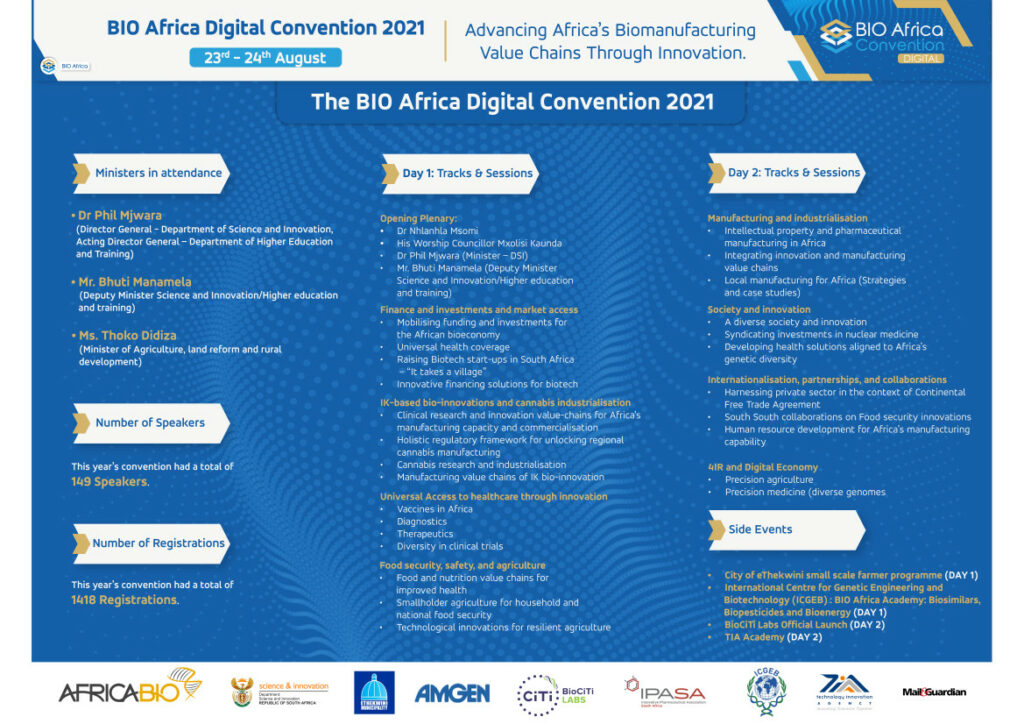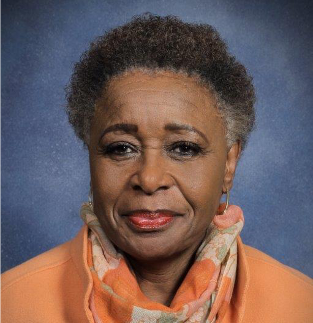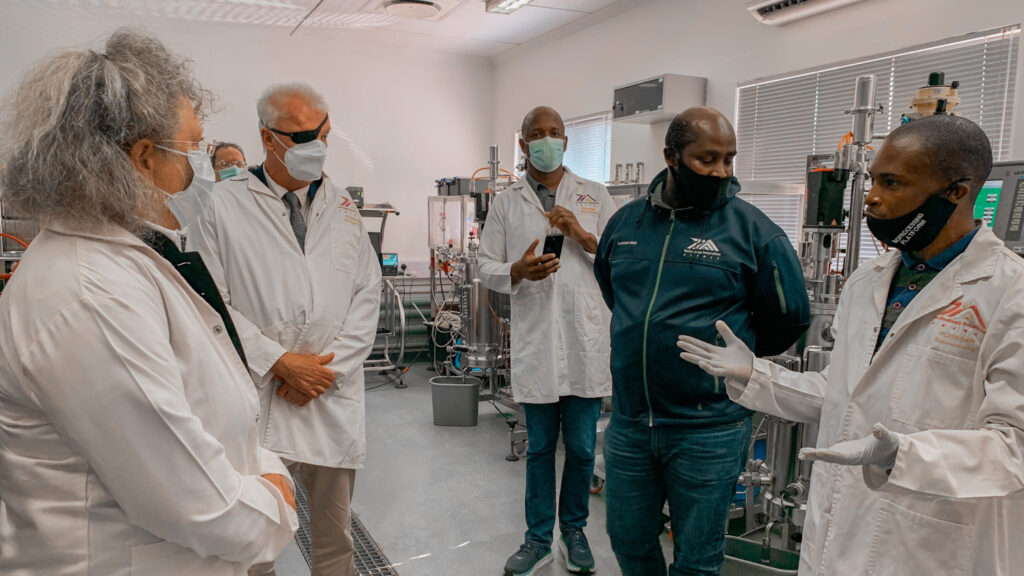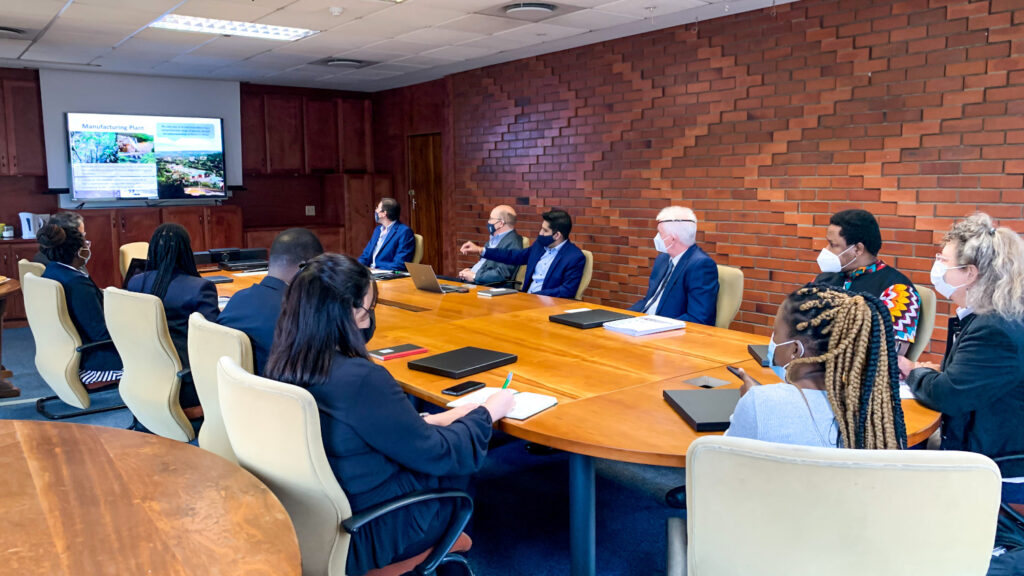Dr Nhlanhla Msomi, President of AfricaBio.
Dr Nhlanhla Msomi
The 2020 BIO Africa Convention was framed by the global anti-racism solidarity campaigns and commitment made by the host organisation to use this important platform to advocate for the biotechnology innovation community for inclusion and diversity. It was pointed out that one of the risks of focusing solely on race as a basis of exclusion may miss some important and nuanced forms of exclusion such as class, gender and sexual orientation. The BIO Africa organisation then committed itself to ensuring that its programme deliberately tackles these issues as its modest contribution to the global fight for equality.
When this stand was taken, there was already emerging evidence that one even more dangerous form of exclusion was taking shape. The world was in the beginning of a deadly Covid-19 pandemic, and as the evidence was gathered it became clear that vaccines are one of the most important tickets to humanity’s safety, and hope of returning to normality, albeit new. What has been witnessed in the past year is the appearance of what most have called vaccine nationalism, which is not a new phenomenon. It is simply a manifestation of what BIO Africa Convention has cautioned against since its inception, and was one of the motivating objectives for its launch in the first place.
The 2021 Convention theme was “Advancing Africa’s Biomanufacturing Value Chains through Innovation”. This is an attempt for Africa to respond to the challenge posed by this pandemic, but more importantly, to galvanise society to create an enabling environment that supports biotechnology innovation to make the continent better prepared for the next pandemic when it occurs. It is not a question of “if”, but “when”. Africa cannot afford to find itself picking up a number and joining the back of the queue as it waits its turn to receive its vaccine doses. It also can no longer afford to depend solely on charitable donations from across the world to receive its vaccine doses and other healthcare needs. The theme of the 2021 Convention recognises that while our policy leaders are doing a commendable job to deal with the existential crisis, there is a need for future-proofing strategies, based on several latent capabilities that the continent possesses.
The Convention was arranged according to eight tracks as is tradition, framed by the main biotechnology sectors. These are not exhaustive but chosen mainly in line with our regional context. The Healthcare Track (advancing universal Access through Innovation) addressed directly the current and future challenges. It featured, as expected, dialogue by executives (Aspen and Biovac) who are at the forefront of ensuring that as a continent there is adequate supply in the short to medium term. This was mixed with individuals who represented the aspect of future-proofing (WHO, CSIR), whose contributions focused on innovation, including establishing the correct capacity at upstream value chains such as discovery science. Excitingly, the WHO has chosen South Africa as the first site of the mRNA Hub, incorporating the different elements from development to manufacturing. The CSIR remains a leading research organisation in the continent, with scale and expertise that can be quickly pivoted, as there is an apparent need to hedge our bets regarding vaccine technology platforms.
Pandemics are not solely dependent on vaccines for management; diagnostics play an important role too. Again, the global value and supply chains are critical in this endeavour. The fact is that there was a serious disruption in the global supply chains during the beginning of the Covid-19 pandemic. The Session of Diagnostics offered real hope for the continent as it featured Innovators based on the continent who have developed and are producing diagnostics to prepare for the next pandemic. This will avoid replication of the experience of 2020, when global supplies were truncated by the closure of logistics as well as being directed to “home nations”, which are mainly based in the global North.
One of the keynote Innovators, Dr Wendy Steven, has been in the forefront of the HIV epidemic for over two decades. This is an apt reminder that there is still a serious epidemic in our midst. In the 2020 plenary, Professor Salim Abdool Karim emphasised that part of the reason South Africa had managed and continues to manage the HIV challenge was the advent of easy-to-use, lateral flow and molecular diagnostics. It was very encouraging to see green shoots that signalled a move towards self-sufficiency through innovation and entrepreneurship in this aspect. The last two sessions in this track highlighted the importance of internalisation as well as South-South collaboration.
 BIO Africa Convention programme highlights
BIO Africa Convention programme highlights
The Therapeutics Session reminded all and sundry that HIV and other RNA viruses are still a major problem. The presentation, by members of what one can perhaps label as one the world’s most prolific laboratories in the world, was inspirational on several fronts. Firstly, this is the same lab at Emory University responsible for producing the backbone of HIV antiretroviral treatment on which more than five million people depend on (essentially converting a terminal illness to a manageable chronic disease). That was inspirational two decades ago, but what was most exciting in this session was that the main speakers were all from South Africa, working under the leadership of one of the world’s pre-eminent medicinal chemists, Dr Dennis Liotta. It provided hope that through international partnerships there is scope to develop our own talent base that focuses on challenges that are uniquely African. The last session probed diversity in clinical trials, which would be a good strategy for developing more efficacious medicines for Africa and other genomes. This session was curated under the auspices of AMGEN’s RISE.
The second track was on Financing, Investments and Market Access Issues, with highlights being universal access to healthcare, innovative financing mechanisms, and shining a light on regional investment drives with a special focus on Invest Durban (the hosting city sponsor) and BioCiTi showcasing Cape Town’s major strides in medical devices. Universal access to healthcare is a modulator of the innovation agenda covered in track one, as it determines what types of innovations introduce the element of appropriateness to the equation. Often incremental innovations are notoriously cosmetic in nature, without really stretching the bounds of efficacy. However, they justify the high costs of medical products. The panelists included the entire spectrum of healthcare providers, and the session explored innovative business models to ensure access through partnerships that possibly redefine the notion of public-private partnerships where they become a win-win scenario without one party disproportionately benefiting at the expense of the other.
Innovative Financing Mechanisms featured a “who’s who” list of globally leading investors in biotechnology, all of whom were born in this continent. They have individually succeeded in investing in biotechnology start-ups and offered their experiences and perspectives on how to mobilise private capital in pursuit of the objective of advancing African development through innovation. They included individuals who have invested in such global breakthroughs as the technology underpinning genomics, at least to Covid-19 vaccines, and several small biotechnology entrepreneurial ventures covering the whole value chain of the biotechnology entrepreneurial ecosystem.
BIO Africa’s fervent hope is that this platform begins to attract other financiers on the entire continent to invest in biotechnology, inspired by the example and success of these panelists elsewhere. The dialogue extended to exploring issues such as arbitrating between the global North and South for a winning strategy that links value chains. The South has strategic advantages such as costs and genetic diversity as a key driver of future biotechnology. The massive outputs of upstream innovations in the North should be leveraged to fast-track product developments that address the needs of the South. In this case, the panel’s discussions in the earlier session on universal access to healthcare provides a template to direct the agenda, with these potentially offering market off-takes in an African context specific manner. A different form of collaborative advanced market commitments (AMC) could be constructed on the models discussed and proposed.
The second major strategic thrust of the Convention is the need for ensuring food security for Africa through biotechnology, linked to the vast genetic resources that we possess. These were explored in two tracks, one being the traditional agri-biotechnology approaches including precision agriculture and other forms of convergence incorporating 4IR, among others. The other avenue, linked to the genetic diversity strategic advantage, is the need to mainstream indigenous knowledge systems into the well-supported Western thinking-driven innovation definitions. This need is more pressing now as the reality taught by Covid-19 is that the mining of these readily available resources from foods, through cosmeceuticals to medicines, will play an important role in mitigating the risks of excessive reliance on imported technologies and products. This could play an important role in a portfolio of near-term and future solutions. This was another area of the Convention characterised by a strong participation of South-South alliances.
Lastly, the strategic underpins of the Convention could be described by the dialogue and presentations in the plenary sessions:
The opening session again demonstrated the unwavering commitment of the South African government as both ministers, senior officials and organisations of the departments of science and innovation, land agriculture, and rural development were present to emphasise the continued commitment of the government and its African Union partners to biotechnology innovation. It is now 21 years since the first biotechnology strategy was launched.
Another important plenary, with a second session on day two, was helmed by leaders of universities in Southern Africa and focused on appropriate human capital development to support innovation.
The second part of this conversation included strategies about the mobilisation of human capital to drive an African-centric agenda by building bridges between the immense intellectual capital located in the diaspora, especially North America. As these individuals share their ancestry with Africa, and have lived experiences mimicking those of their fellow Africans, there are opportunities to leverage their locations to drive the biotechnology development agendas
- The last plenary of the Convention, traditionally facilitated by the president of AfricaBio, was the Dialogue with Global Leaders in Biotechnology and featured a Nobel prize-winning scientist for Medicine, and global leaders in pharmaceutical and vaccine development and production. This was a discussion on how Africa could advance its innovation strategies to leapfrog several stages by playing a smart architectural innovation game to provide food security (through locally developed GMOs), diagnostics and biopharmaceuticals, and other products.
These plenaries were important in drawing up the strategic agenda to drive future innovation for manufacturing of biotechnology products in the continent.
The highlight of the Convention featured Women in Leadership:
- The second Women in Leadership discussion, and is now a permanent feature of the Convention. These powerful global leaders discussed the important issue of the TRIPS waiver for Covid-19 vaccines from different perspectives, covering the whole gamut from pro, through constructive, alternative to anti. This is one of the demonstrable values of the Convention as often viable solutions can be constructed through engagements mixing extreme points of view into a pragmatic solution
- The Rising Stars is an initiative of BIO Africa that is set to grow and become a model of human capital development strategy for biotechnology development in the continent. This session showcased young African women, from the continent and diaspora, sharing their experiences as they journeyed into biotechnology innovation and entrepreneurship. An important feature is targeting young girls who see role models who look and speak like them across the continent, thus demystifying science and innovation careers. Its sister programme, STEAM Camps for Rural Girls, was launched earlier in the year and will be massified post Covid-19.
The grand finale was the launch of the Dr Konji Sebati Fellowship for Female Leaders of Tomorrow, announced by Dr Phumzile Mlambo-Ngcuka, to provide training opportunities for young women. Sebati was the former CEO of IPASA, a board member of AfricaBio, and a leader of women’s empowerment in the healthcare industry. This fellowship has received support from the University of Sussex’s Mandela Scholarship; one of the fellows will receive a scholarship each year, and AfricaBio will provide living expenses support.
The Dr Konji Sebati Fellowship
AfricaBio launched the BIO Africa Fellowship Programme at this year’s fourth annual BIO Afdrican Digital Convention.
 Dr Konji Sebati
Dr Konji SebatiThe programme will encompass a fellowship that honours the late Ambassador Dr Konji Sebati, who was the CEO of IPASA and an AfricaBio board member. The Dr Konji Sebati Female Leaders of Tomorrow will offer young female scientists a combination of work experience that is focused on several tracks within the business of science, from innovation management, strategy, finance, communications to science/innovation policy. The fellowship is open to young female scientists with a minimum requirement of a BSc honours or post-internship.
The Mandela Scholarship, started at Sussex University in 1973, will offer a full tuition for a fellow who successfully completes their one-year programme. The fellow is expected to return to the continent after graduation and continue contributing to the goals of building biotechnology innovation for African development in the areas of healthcare, food security and other life sciences related fields.
International Centre for Genetic Engineering and Biotechnology (ICGEB) Partnership
Director-General of the ICGEB, Dr Lawrence Banks, announced at the 2021 BIO Africa Convention an initiative that will bring enormous improvements to the lives of patients.
 The Director-General of the ICGEB at the Technology Innovation Agency Bioprocessing unit.
The Director-General of the ICGEB at the Technology Innovation Agency Bioprocessing unit.
The ICGEB, an intergovernmental organisation dedicated to advanced research and training in molecular biology, biotechnology, advancing knowledge and applying the latest techniques in the fields of Biosimilars, Biopesticide and Bioenergy seeks to enter into strategic partnerships with the National Bioproducts Institute (NBI) KwaZulu Natal Research Innovation and Sequencing Platform (KRISP UKZN) and the Technology Innovation Agency (TIA) as an output of the BIO Africa Digital Convention hosted by AfricaBio.
The ICGEB’s main objective is to increase access to Biosimilars through fostering internal domestic production capacity in the field of biopharmaceuticals in ICGEB Member States, with the aim of achieving targets set towards good health and wellbeing, innovation, infrastructure and reducing inequalities.
 The AfricaBio and ICGEB teams visiting the Nelson Mandela School of Medicine with the Deputy Vice-Chancellor, Professor Mosa Moshabela.
The AfricaBio and ICGEB teams visiting the Nelson Mandela School of Medicine with the Deputy Vice-Chancellor, Professor Mosa Moshabela.
This strategic partnership in the biotechnology industry will allow these KZN technology-based organisations to gain a foothold in Biosimilar discoveries and advances in science for the purpose of public commercial use.
The National Bioproducts Institute (NBI) is a pharmaceutical manufacturer. Its core business is the manufacture of biopharmaceutical products from human plasma into derived medicinal products. The institute also develops and manufactures diagnostics kits and monoclonal antibodies for the South African and international diagnostic market.
 The AfricaBio and ICGEB teams attend a seminar at the National Bioproducts Institute.
The AfricaBio and ICGEB teams attend a seminar at the National Bioproducts Institute.
“Partnerships that help with growth and scientific impact that create societal mandates and impact communities are essential,” said Professor Mosa Moshabela. A partnership between KRISP UKZN and ICGEB will be seen in pre-clinical and clinical trials that go with Biosimilars rollout, while the Technology Innovation Agency will play a role in the capacity to translate a greater proportion of Biosimilars research and development into potential commercial technology products.
In industries such as healthcare and biotechnology, the high cost of commercialisation makes it difficult for research to succeed on its own. To overcome this challenge the ICGEB aims to form partnerships and collaborations in Africa whereby therapeutic reagents and diagnostic kits can be produced locally, which will cater to the African population at an affordable price.